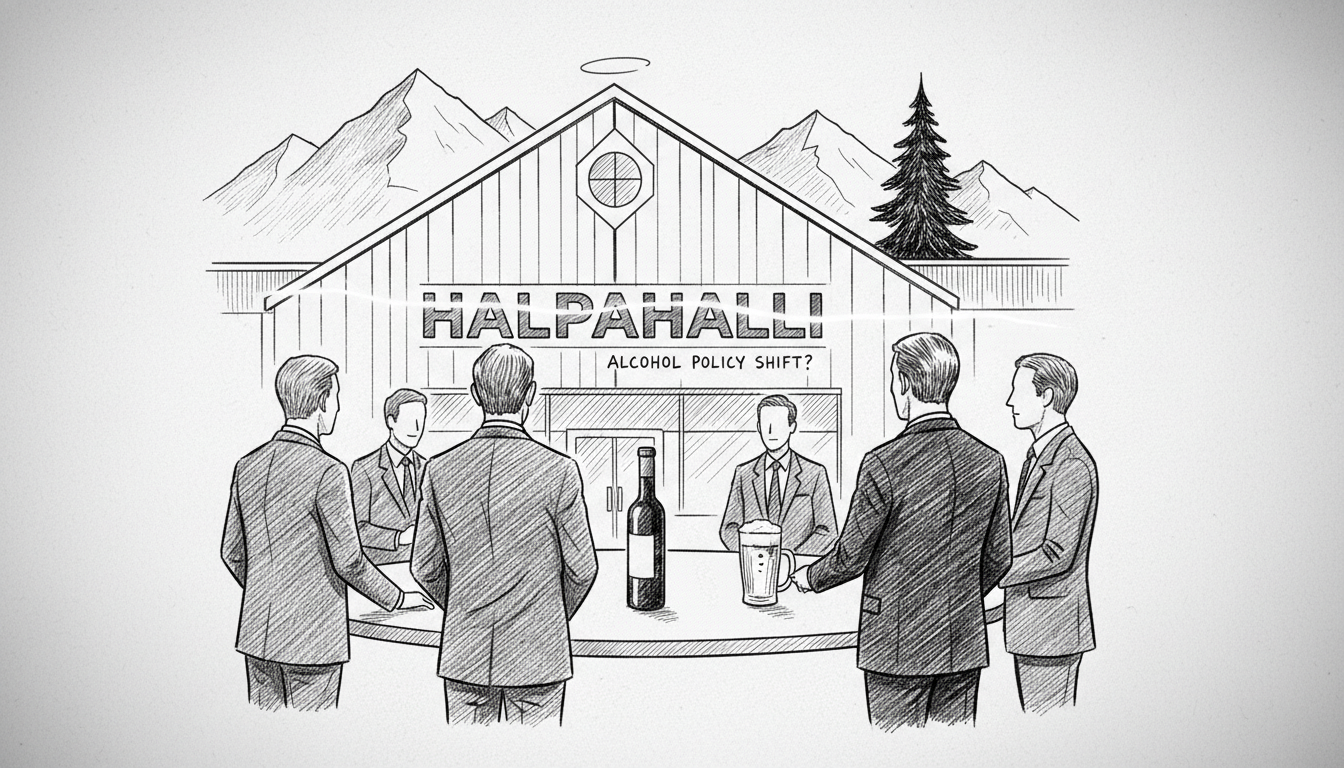A prominent Finnish discount retailer faces a potential transformation of its core identity. Management at Halpahalli has discussed introducing mild wines and beers to store selections. This would mark a dramatic departure for the chain known for its alcohol-free policy.
Industry analyst Arhi Kivilahti calls the consideration understandable. He says alcohol represents an easy expansion into familiar territory. Customers already understand these products without needing education. The chain's CEO has confirmed discussions with his father, the company founder, about this principled matter.
Halpahalli's distinctive feature has long been its absence of alcohol products. This policy originated after founder Esko Ylinen became religious and stopped drinking. Alcohol and tobacco disappeared from shelves following his personal transformation. Stores currently carry 2.5% mild beer, which customers perceive as non-alcoholic according to the CEO.
No final decision has emerged about the chain's future alcohol policy. The CEO acknowledges these are sensitive family discussions given the founder's strong principles.
Alcohol represents a major category in grocery retail, Kivilahti explains. It can constitute a substantial portion of sales alone. He predicts alcohol's role in Finnish grocery retail could grow further if legislation changes. Even under current laws, alcohol holds significant growth potential with highly profitable products like Lonkero, a popular Finnish gin-based beverage.
Alcohol products offer practical advantages too. Chains find them easier to handle and store compared to fresh produce. Kivilahti suggests adding stronger alcohol would likely change Halpahalli's customer base. It would give shoppers more reasons to visit their stores.
Finnish grocery retail operates under challenging structural conditions. Kivilahti describes it as mercilessly difficult. Finland lacks competitive wholesale options, forcing retailers to purchase certain products from Kesko, one of two dominant market players.
This competitive pressure explains why discount chain Tokmanni recently opened its first combined store with Spar supermarket. Finland's grocery sector remains strongly dominated by Kesko and S-group.
Kivilahti believes implementing alcohol sales would represent primarily a psychological shift for Halpahalli. The chain now faces difficult questions about compromising principles for business survival. Their situation hasn't been easy with limited sales growth in recent years. Selling alcohol offers a straightforward way to increase attractiveness.
The analyst finds Halpahalli's alcohol-free stance refreshing within Finnish retail landscape. He notes retail always involves choices about what not to do. This potential policy reversal highlights the tension between business realities and founding principles in Finland's competitive market.
Finnish alcohol retail operates under specific government regulations. Alko maintains a monopoly on spirits and wines above 5.5% alcohol content. Grocery stores can only sell beverages up to 5.5% alcohol. This creates natural expansion opportunities for retailers seeking higher-margin products within legal limits.
The discussion reflects broader tensions in Nordic retail between tradition and commercial pressures. Many family-founded businesses face similar challenges when original values conflict with market demands. Halpahalli's decision will signal how Finnish retailers balance heritage with contemporary competitive realities.

